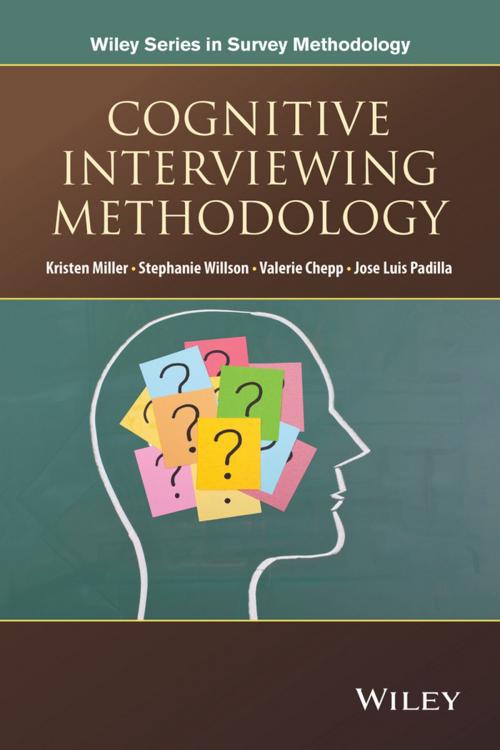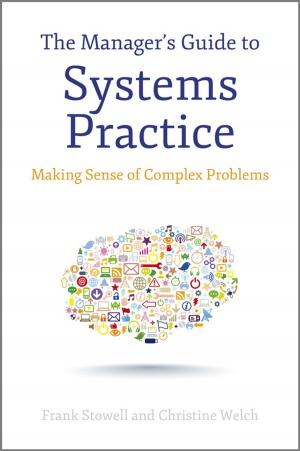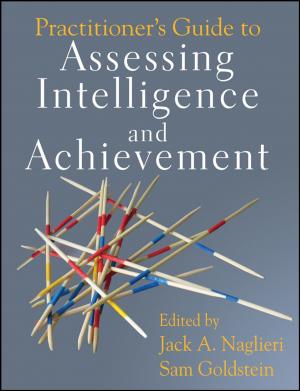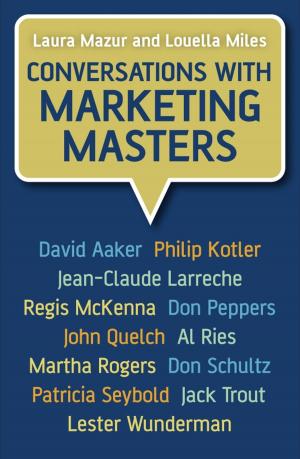Cognitive Interviewing Methodology
Nonfiction, Social & Cultural Studies, Social Science, Statistics, Science & Nature, Mathematics, Science| Author: | ISBN: | 9781118589625 | |
| Publisher: | Wiley | Publication: | July 15, 2014 |
| Imprint: | Wiley | Language: | English |
| Author: | |
| ISBN: | 9781118589625 |
| Publisher: | Wiley |
| Publication: | July 15, 2014 |
| Imprint: | Wiley |
| Language: | English |
AN INTERDISCIPLINARY PERSPECTIVE TO THE EVOLUTION OF THEORY AND METHODOLOGY WITHIN COGNITIVE INTERVIEW PROCESSES
Providing a comprehensive approach to cognitive interviewing in the field of survey methodology, Cognitive Interviewing Methodology delivers a clear guide that draws upon modern, cutting-edge research from a variety of fields.
Each chapter begins by summarizing the prevailing paradigms that currently dominate the field of cognitive interviewing. Then underlying theoretical foundations are presented, which supplies readers with the necessary background to understand newly-evolving techniques in the field. The theories lead into developed and practiced methods by leading practitioners, researchers, and/or academics. Finally, the edited guide lays out the limitations of cognitive interviewing studies and explores the benefits of cognitive interviewing with other methodological approaches. With a primary focus on question evaluation, Cognitive Interviewing Methodology also includes:
- Step-by-step procedures for conducting cognitive interviewing studies, which includes the various aspects of data collection, questionnaire design, and data interpretation
- Newly developed tools to benefit cognitive interviewing studies as well as the field of question evaluation, such as Q-Notes, a data entry and analysis software application, and Q-Bank, an online resource that houses question evaluation studies
- A unique method for questionnaire designers, survey managers, and data users to analyze, present, and document survey data results from a cognitive interviewing study
An excellent reference for survey researchers and practitioners in the social sciences who utilize cognitive interviewing techniques in their everyday work, Cognitive Interviewing Methodology is also a useful supplement for courses on survey methods at the upper-undergraduate and graduate-level.
AN INTERDISCIPLINARY PERSPECTIVE TO THE EVOLUTION OF THEORY AND METHODOLOGY WITHIN COGNITIVE INTERVIEW PROCESSES
Providing a comprehensive approach to cognitive interviewing in the field of survey methodology, Cognitive Interviewing Methodology delivers a clear guide that draws upon modern, cutting-edge research from a variety of fields.
Each chapter begins by summarizing the prevailing paradigms that currently dominate the field of cognitive interviewing. Then underlying theoretical foundations are presented, which supplies readers with the necessary background to understand newly-evolving techniques in the field. The theories lead into developed and practiced methods by leading practitioners, researchers, and/or academics. Finally, the edited guide lays out the limitations of cognitive interviewing studies and explores the benefits of cognitive interviewing with other methodological approaches. With a primary focus on question evaluation, Cognitive Interviewing Methodology also includes:
- Step-by-step procedures for conducting cognitive interviewing studies, which includes the various aspects of data collection, questionnaire design, and data interpretation
- Newly developed tools to benefit cognitive interviewing studies as well as the field of question evaluation, such as Q-Notes, a data entry and analysis software application, and Q-Bank, an online resource that houses question evaluation studies
- A unique method for questionnaire designers, survey managers, and data users to analyze, present, and document survey data results from a cognitive interviewing study
An excellent reference for survey researchers and practitioners in the social sciences who utilize cognitive interviewing techniques in their everyday work, Cognitive Interviewing Methodology is also a useful supplement for courses on survey methods at the upper-undergraduate and graduate-level.















